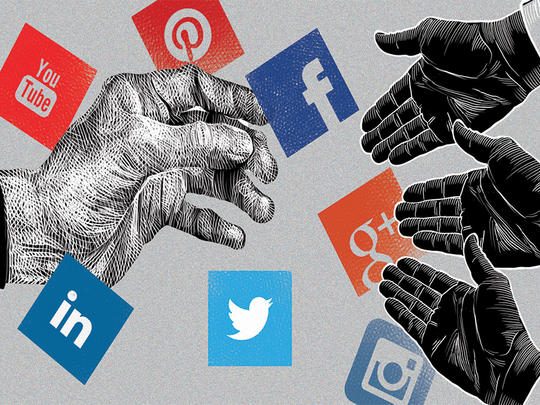
Recent events in Paris revealed once again that the number of those capable of shaping public opinion are increasing with every passing day. The time when governments could control communications via traditional communication channels such as newspapers and television are long gone.
Let us take a step back and track the events as they unfolded in the aftermath of the Paris crisis.
While shockwaves were still spreading around the world, social networking platforms were quickly inundated with thousands of pictures and videos surrounding the incident along with explanations and analyses. Most of the accounts reflected the presenter’s/originator’s ideologies or agendas based on historic, geopolitical or ideological conflicts.
Such biased, misinformed or disinformed narratives — each appealing to a specific audience segment — completely overshadowed all official account of the events.
It is often believed, and in most instances rightly so, that the official statement is often the weakest and has the least impact. This theory could have its origin in the fact that at the time when an incident occurs, official statements usually call for rationality and patience even as facts are clarified. However, while a topic is still ‘hot’ and prone to different interpretations, such rational statements will not be heard unless they are substantiated or quickly followed up with detailed logical explanations.
The first account or version of events will inevitably continue to influence public opinion for a long time as it comes at a time when the public reacts with a sense of shock and is the most impressionable. In the initial moments following a horrific incident, the public is psychologically most receptive to any information and interpretation. We as human beings do not like confusion and fear the unknown, making us vulnerable and we quickly accept any available explanation and consider it to be the ultimate truth.
It is hard to control an audience that is under the influence of psychological and ideological stress. It will seek ready explanations and in all likelihood ignore official statements that call for patience and restraint instead of promptly and plainly providing an accurate account of the developments.
Governments must, therefore, take note that they can no longer ignore the social media space. Decision-makers and opinion leaders in the government sector need to be ready to deal with incidents, cater to spontaneous public reactions and counter disinformation. In addition, they need to deal with public demands for information appropriately and swiftly.
Governments also cannot wait until an incident takes place to come up with an appropriate response. Crises management plans must be in place to act upon them in the event of mishaps. One cannot stress enough the importance of honesty and transparency in implementing these plans that need to be carefully crafted to factor-in multiple types of audiences and receivers, while remaining aligned to the central message in government communications.
Crises management, plans and messages need to be communicated clearly to government leaders and spokespersons to ensure consistency in information. Several prominent officials and leaders are active on social media platforms and in times of crises people are inclined to turn to them and inundate them with questions and requests for clarifications and opinions. It is vital that government officials are not only aware of the messages but also reiterate them in all online conversations. In addition, they must be carefully trained to deal with difficult and stressful situations in framing their responses. Saying the wrong thing or not saying anything at all are among the most common mistakes that government officials are guilty of in times of crises. Some officials have gained considerable influence and a significant following on social media platforms and that can be effectively leveraged to help governments navigate turbulent waters when crises hit.
Multiple nationalities
An important aspect to be kept in mind in our contemporary world is the diversity of stakeholders in every given issue. It is virtually impossible to describe any incident as purely domestic, let alone incidents that involve race, religion and multiple nationalities. When governments face what the French authorities faced in Paris or what the American officials had to deal with in Ferguson, they needed to speak to their own people and the people of other countries in different languages and through leveraging a spectrum of media channels and platforms.
Social media has become the first and indeed the final frontier for news as a prime driver of public opinion today. In this context, it only becomes that much more important for government communication crises-management strategies and plans to factor-in social media as the essential starting point for action.
Shaikh Sultan Bin Ahmed Al Qassimi is Chairman of Sharjah Media Centre.










